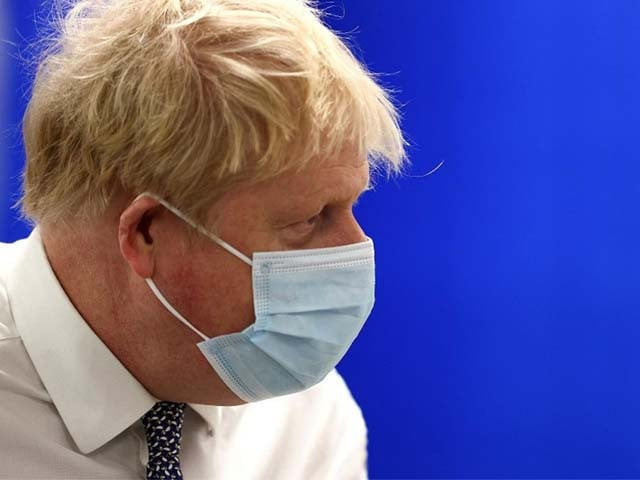In a surprising move, UK Prime Minister Boris Johnson announced that all the Covid-19 restrictions in place to help combat the Omicron variant would be lifted from January 26, 2022. This means that wearing face masks in public places in no longer mandatory, citizens are no longer advised to work from home, and Covid passports are no longer necessary. Moreover, from March 24, 2022, the UK will also end the legal requirement to self-isolate in case a person is positive for Covid. The retraction of these protocols had led to much debate, both within the UK and across the globe, with some arguing it signals the final stage of the battle against Covid, while others have termed these measures premature. Although Covid cases in the UK have considerably declined, the kingdom still reports more than 80,000 positive tests each day. Nonetheless, Johnson has been quoted saying:
“We must learn to live with Covid in the same way we live with flu.”
However, given the high numbers, one wonders what is the reasoning and rationale behind the government’s decision? Why have observers like the World Health Organistaion (WHO) called it a premature evaluation? Can this lead to another phase of information chaos, and what are the implications for a country like Pakistan where the virus is surging?
One must keep in mind that in the UK, three out of four individuals are fully vaccinated, and roughly one out of four has had a Covid infection. As a result of these numbers, it has been argued that sufficient immunity is available amongst the masses, either from the vaccine or the virus, hence enabling the population to fight the current milder yet prevalent Omicron strain of the virus. The UK just passed its latest peak in which hospitalisations and deaths were significantly lower than the numbers reported during previous strains.
These real-life findings from the UK match the hospital-based studies from South Africa, explaining why Omicron was mild. Although this new variant can spread despite vaccinations, it cannot infiltrate and damage the lung cells. According to another study, testing positive for Omicron will help build immunity against the variant and will also lead to high protection against the Delta strain, a capacity which previous variants lacked. Consequently, the deadly Delta strain could be eliminated and replaced by the milder Omicron.
However, according to the WHO’s technical lead on Covid-19, Dr Maria Van Kerkhove, the WHO still recommends wearing masks and self-isolation because completely abandoning these pre-cautions will allow the virus to spread further. She stated,
“We’re hearing a lot of people suggest that Omicron is the last variant, that it’s over after this. That is not the case because this virus is circulating at a very intense level around the world.”
Similarly, White House Chief Medical Advisor Dr Anthony Fauci has said that while we can be cautiously optimistic, we must also be prepared for the worst-case scenario i.e. a new virus strain of high transmissibility or high virulence.
Given the constant evolving nature of the data and new findings, the situation is a confusing one and may become increasingly alarming if more countries announce decisions similar to the UK – in complete isolation from the global community. However, within the UK, the speculation is that the prime minister’s decisions are intended to divert attention away from the investigation he is facing about holding parties at 10 Downing Street amid Covid-19 lockdown restrictions. On the other hand, people supporting the government’s decision may start speculating about the intentions behind the apprehension that the WHO has expressed.
After two marathon-like years of testing, quarantining, treating and vaccinating, the finish line seems to be in sight. However, this requires majority of the world’s population to get vaccinated. Even a country like Pakistan, which has performed remarkably well in the battle against Covid, has achieved only 40% vaccine coverage. This needs to be escalated rapidly, and depends on making the doses available and getting them efficiently to the masses. Adhering to preventive practices like wearing face masks and avoiding crowds must continue as requirements.
In light of what the UK has done, the perception that the pandemic has ‘ended’ and that people can stop wearing masks and forego vaccinations can be catastrophic in some countries. During a pandemic, different countries and health bodies may be looking at science correctly, but without consulting each other and adopting a standard code, they may send conflicting messages. Hence, it is essential that mandated health agencies like the WHO quickly finalise the criteria which must be adhered to at the tail-end of the pandemic. Countries that achieve their vaccination target and fulfil the stipulated criteria may then declare their respective phase of endemicity.



COMMENTS
Comments are moderated and generally will be posted if they are on-topic and not abusive.
For more information, please see our Comments FAQ